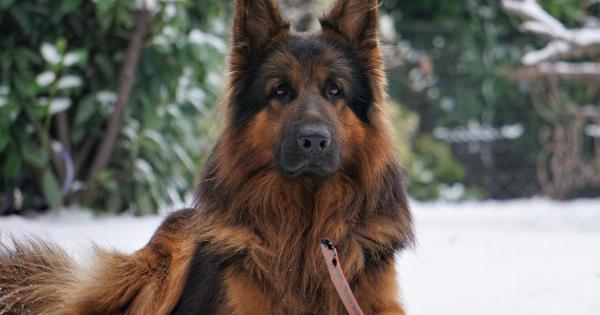Grief is a complex emotion that humans experience when dealing with loss. However, we often forget that animals can also mourn the loss of a loved one, whether it be a fellow animal companion or their human owner.
Just like humans, dogs can exhibit signs of grief and it’s important for pet owners to recognize and respond to these signs in order to help their furry friends through the grieving process.
Recognizing Signs of Grief in Dogs
While dogs may not express grief in the same way humans do, there are subtle signs that they are experiencing grief. Dogs are highly intuitive creatures and can sense when something is wrong in their immediate environment.
Here are some common signs of grief in dogs:.
1. Loss of appetite: Dogs may lose interest in food or become hesitant to eat when grieving.
2. Changes in sleeping patterns: Dogs may have trouble sleeping or spend more time sleeping when dealing with grief.
3. Changes in behavior: Dogs can exhibit unusual behaviors such as increased aggression, lethargy, or restlessness when grieving.
4. Excessive vocalization: Dogs may bark or howl more frequently when experiencing grief.
5. Withdrawal: Dogs may become socially withdrawn and avoid interactions with other pets or humans.
6. Searching and calling out: Dogs may wander around the house or outside, searching for the lost companion.
7. Increased need for affection: Dogs may seek more cuddles, attention, and comfort from their owners.
8. Loss of interest in regular activities: Dogs may lose interest in activities they once enjoyed, such as playing fetch or going for walks.
9. Loss of house-trained behavior: Dogs may have accidents indoors or display regression in their potty training when mourning.
10. Depression: Dogs can experience a general sense of sadness or depression when grieving.
Responding to Grief in Dogs
Understanding the signs of grief in dogs is the first step, but it’s equally important to respond to their mourning in a compassionate manner. Here are some ways pet owners can help their dogs cope with grief:.
1. Maintain routine: Dogs thrive on routine, so it’s important to stick to their regular schedule as much as possible. This consistency provides a sense of stability during difficult times.
2. Provide comfort and reassurance: Offer plenty of physical affection, cuddles, and reassurance to help your dog feel safe and loved. Spending quality time together can strengthen the bond and provide a source of comfort.
3. Create a safe space: Set up a quiet and cozy spot in your home where your dog can retreat when they need some solitude. Make sure this space is away from any sources of distress or reminders of the lost companion.
4. Gradually reintroduce activities: Encourage your dog to participate in activities they used to enjoy, but start slowly and allow them to set their own pace. Engaging in familiar activities can help bring some normalcy back into their lives.
5. Seek professional help if needed: If your dog’s grief is severe or prolonged, it may be best to consult a veterinarian or an animal behaviorist. They can provide guidance and support to help your dog navigate through the grieving process.
6. Keep an eye on their health: Grief can take a toll on a dog’s physical health. Monitor their eating habits, ensure they stay hydrated, and watch for any concerning symptoms. Regular veterinary check-ups are essential during this time.
7. Provide mental stimulation: Engage your dog in mentally stimulating activities like puzzle toys or obedience training. This can help redirect their focus and provide a positive outlet for their emotions.
8. Consider companionship: If appropriate, introducing a new companion gradually can help your grieving dog gradually adjust to the loss. However, this should be done with caution and only when your dog is ready.
9. Allow time for healing: Grief takes time to heal, both for humans and dogs. Be patient with your dog and remember that the grieving process is unique for every individual. Give them the space and time they need to heal.
10. Take care of yourself: Supporting a grieving dog can be emotionally draining. It’s important for pet owners to practice self-care, seek support if needed, and lean on friends, family, or support groups who understand and empathize with the loss.
The Importance of Recognizing and Addressing Grief in Dogs
Grief is a natural and necessary process that allows both humans and animals to mourn the loss of a loved one.
By recognizing and addressing grief in dogs, pet owners can help their furry friends navigate through this difficult time with love, compassion, and understanding. By providing the support they need, we can ensure that our beloved companions feel safe, secure, and eventually find solace in their hearts once again.






























